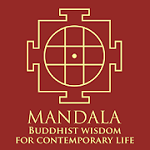
|
|
|
Home Asia Pacific South East Asia Myanmar Myanmar Protest News Burma's Struggle: The Avowed Against the "Atheists"by Cynthia Boaz, t r u t h o u t, October 12, 2007
Afflicted by military dictator and lackeys
Rangoon, Burma -- They aren't going to give up the fight for Burma.
Successful repression of a mass nonviolent movement does not consist, as the generals would have us believe, of simply creating the appearance of maintaining control. Effective repression can only be measured by the degree to which it has succeeded in undermining the people's will to resist. And by that criterion, the junta seems to be faltering. To illustrate: Pro-democracy groups report that on Tuesday in Thingangyun Township, sixty helium balloons carrying thirty posters were released, each of which had the face of General Than Shwe with an accompanying swastika and the word "Butcher" above his photo. On the same day, the All Burma Federation of Student Unions issued a formal statement that proclaimed, "We firmly reaffirm our commitment to continue the unfinished task of our fallen brothers and sisters and will preserve their brave fighting peacock spirit [and that] we hereby profoundly declare that ABFSU will strengthen and solidify all student unions [and] student [organizations] to be a unified front to wage our unfinished uprising." The previous day, October 8, the Lawyers Union had issued a statement via Voice of America describing the junta's unwarranted arrests of monks and students, while a simultaneous strike was being staged by more than 800 workers of the Charming garment factor in Rangoon. This demonstration of solidarity across groups and classes is a promising sign of the movement's unity and will be critical to its ability to both adapt and endure. A few days earlier, on October 5, a message was left at the entrance of the North Okkalapa Mae Lamu Pagoda in Rangoon which said "[Even] I myself, Lord Buddha, am under house arrest." And later that day, a wreath was found hanging on the banyan tree in front of State High School No. 3 in Tamwe Township with a portrait of Than Shwe and the words "Military Dictator Than Shwe, the Atheist." To refer to General Shwe's "atheism" is to highlight the separation of the regime from the Buddhist identity of Burma. It is a signal to the people that those in charge are not real Burmese, and therefore aren't entitled to rule. The tactic has the potential to help remove any remaining shred of regime authority among the people. It also lets the generals know that their brutality against the much-beloved monks will not be forgotten once the blood has been washed from the streets. Equally important, the use of mockery is part of a strategy that has been utilized by other successful movements in previous struggles, and it can be a powerful means of winning sympathy for a cause. Laughter and fear do not comfortably coexist. Among other things - by bringing people together through humor - it is a bold statement to the regime that the people refuse to be terrorized into submission. With no moral authority or political legitimacy, the only thing holding the regime in place is the threat of force. But with every bullet or baton used against the people of Burma, the regime reveals that its "strength" will in fact be its undoing. (The events within Burma described above come from a member of the exiled pro-democracy leadership of Burma 8888. This individual is now deeply involved in the current movement's strategizing and communications, and is in regular contact both with groups on the Thai-Burma border and within the country. Because of the sensitive nature of his work, he has asked to remain anonymous.) --------- |
 Get your Korean Buddhist News here, brought to you by BTN-Buddhist Channel |
 |
 The Mandala app brings together Buddhist wisdom and meditation techniques with the latest insights of psychology and neuroscience to handle the challenges and complexities of modern life. The App offers a series of engaging talks and conversations with experts on a wide variety of topics, such as managing stress, dealing with adversity, developing greater resilience, cultivating empathy and compassion, creating healthy relationships, and many more. These topics are explored to help find greater peace, meaning and joy in our lives. Our panel of experts include Dr, Thupten Jinpa, Daniel Goleman, Kelly McGonigal and others.FREE DOWNLOAD here |
| Point
your feed reader to this location |
| Submit an Article |
| Write to the Editor |


